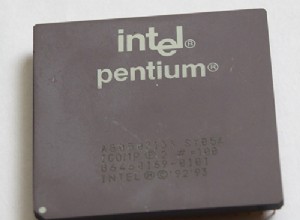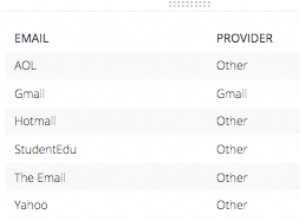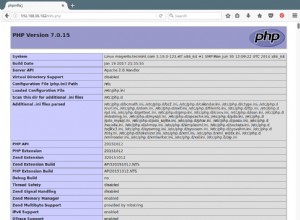Este es un problema conocido con .NET proporcionado System.Data.OracleClient.OracleConnection conductor. La solución es usar el cliente ODP.net proporcionado por Oracle Oracle.DataAccess.Client.OracleConnection (consulte:http://nuget.org/packages/odp.net.x86/) o use la siguiente solución (referencia de:http://thebasilet.blogspot.be/2009/07/nhibernate-oracle-clobs.html ).
public class CustomOracleDriver : OracleClientDriver
{
protected override void InitializeParameter(System.Data.IDbDataParameter dbParam, string name, SqlType sqlType)
{
base.InitializeParameter(dbParam, name, sqlType);
// System.Data.OracleClient.dll driver generates an ORA-01461 exception because
// the driver mistakenly infers the column type of the string being saved, and
// tries forcing the server to update a LONG value into a CLOB/NCLOB column type.
// The reason for the incorrect behavior is even more obscure and only happens
// when all the following conditions are met.
// 1.) IDbDataParameter.Value = (string whose length: 4000 > length > 2000 )
// 2.) IDbDataParameter.DbType = DbType.String
// 3.) DB Column is of type NCLOB/CLOB
// The above is the default behavior for NHibernate.OracleClientDriver
// So we use the built-in StringClobSqlType to tell the driver to use the NClob Oracle type
// This will work for both NCLOB/CLOBs without issues.
// Mapping file must be updated to use StringClob as the property type
// See: http://thebasilet.blogspot.be/2009/07/nhibernate-oracle-clobs.html
if ((sqlType is StringClobSqlType))
{
((OracleParameter)dbParam).OracleType = OracleType.NClob;
}
}
}
Necesitas actualizar tu SessionFactory para usar este controlador, así como actualizar cualquiera de sus asignaciones de clob para usar StringClob tipo personalizado
Map(x => x.EventType).CustomSqlType("Clob").CustomType("StringClob");




